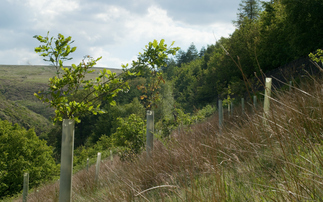We Mean Business coalition sends text proposals to key negotiators ahead of Paris summit
We Mean Business - a coalition of organisations working with businesses and investors - has issued a set of eight specific text proposals they would like to see form part of a Paris agreement on climate change.
Delivered this morning to key negotiators as part of a "Business Brief" for the upcoming UN summit in Paris next week, the proposals include calls for a five-year ratchet mechanism, a long-term goal to reach net-zero emissions by the end of the century, and commitments to mobilise greater levels of climate finance.
It is the first time that the business community has published detailed proposals for the specific measures it would like to see in a climate agreement. The proposals have been sent to lead negotiators and ministers, and will be lobbied for by We Mean Business members at the conference itself.
Speaking at a launch event in London earlier today, Climate Group chief executive Mark Kenber said the proposals were designed to shape an agreement at Paris that would drive investment in the low-carbon economy.
"There have been many calls to arms from the business community in general terms," he told reporters. "What this does, very specifically and using the language of the text, legal language and diplomatic language used by ministers and negotiators, is provide specific recommendations for the text based on the most recent iteration of the negotiating text."
He added that the proposals were designed to support the government process, not "throw in a few spanners from left-field". "This is about helping negotiators, ministers and heads of state in Paris come up with a realistic and practical solution that will ramp up the level of action," he said.
For each proposal the Business Brief outlines the preferred text and a fall-back option, based on the current draft text.
The eight proposals are:
- A long-term mitigation goal to reach net zero global greenhouse gas emissions "well before the end of this century"
- A ratchet mechanism that requires governments to raise their climate commitments every five years
- Further development of an international framework for carbon pricing
- Scaling up climate finance by improving predictability of finance flows and encourage domestic environments to encourage investment
- Commitment to clarity and transparency to ensure governments are accountable for their pledges
- Requirement for national commitments to be as ambitious as possible
- A long-term vision for increasing resilience and reducing vulnerability to climate change
- Annual events to scale up climate action - from both the public and private sector - in the years leading up to 2020
Speakers at the launch event agreed the most important requirement for a Paris agreement was the need for a long-term stable policy framework that "sets the direction of travel" for the global economy.
Kenber highlighted the role of a long-term decarbonisation goal in providing businesses and investors with certainty for the future. "If you're trying plan investments that will have a lifetime of 10, 20 or 30 years, you need need to have a sense of what the world is going to look like in that time," Kenber said. "The long-term goal is about setting a sense of direction that is shared by all."
Steve Howard, chief sustainability officer for IKEA, argued that the inclusion of a five-year ratchet mechanism would give businesses clear interim guidance. In a business "you set your direction and then you regularly review and you tighten targets and see where you can make progress", he said. "So the ratchet mechanism is really important."
Speakers - including eminent economist Lord Stern - argued that by setting a clear framework for long-term decarbonisation, governments can bring down the cost of capital for low-carbon investment. "The clarity will bring down the cost of capital," said Stern. "If we can bring down that cost of capital... we transform the volume of investment and we transform the bias against the renewables within the close to zero marginal cost. That policy clarity will manifest itself with a big reduction in the financial markets in the cost of capital."
Michael Liebreich, founder of Bloomberg New Energy Finance, agreed. "The inevitability of these transitions is very important, because it directly impacts on the cost of capital," he said. "The relative cost of capital of doing something, building assets that are definitely part of the future versus the cost of capital in building assets that may have to be retired, is shifting dramatically, and that is what we are going to see ‘locked in' in Paris."
World leaders will be keen to ensure that any deal wins the support of the business community, which will be crucial in driving the scale of investment needed to decarbonise the global economy. But it will be at least a week before the contents of the final climate deal becomes clear.
This article is part of BusinessGreen's Road to Paris hub, hosted in association with PwC.









